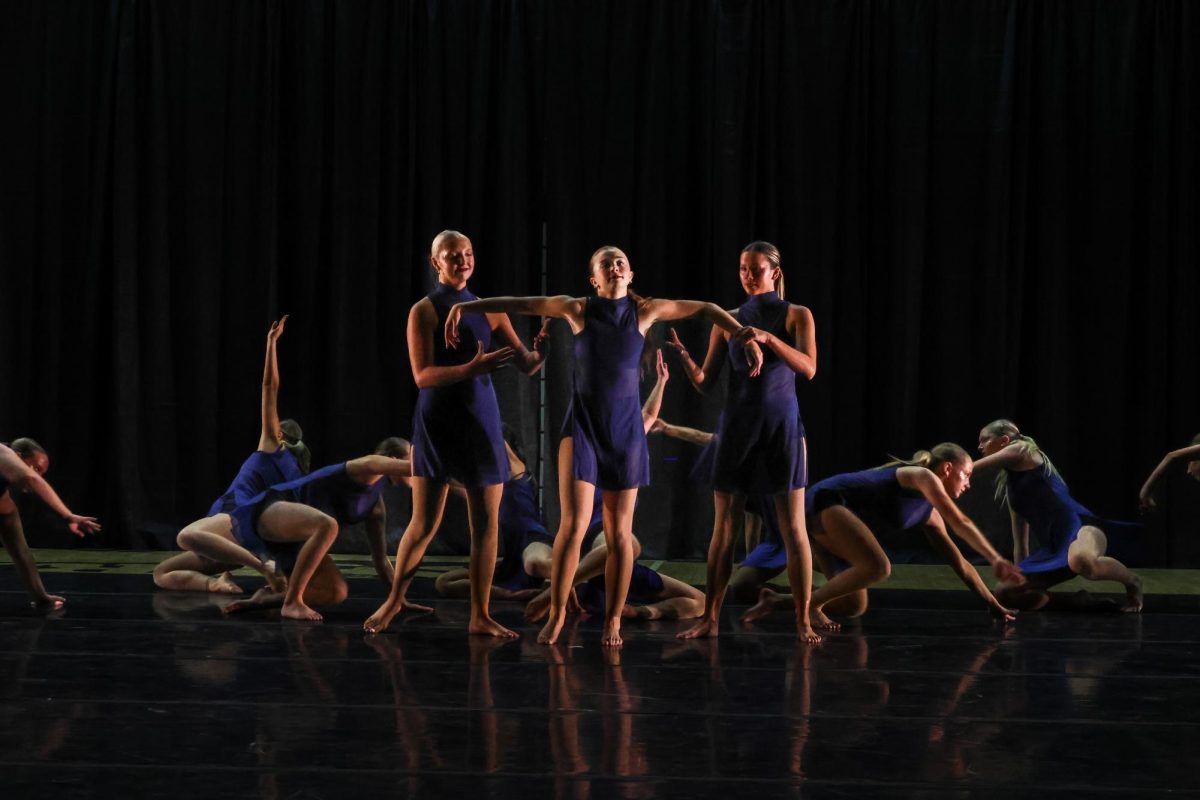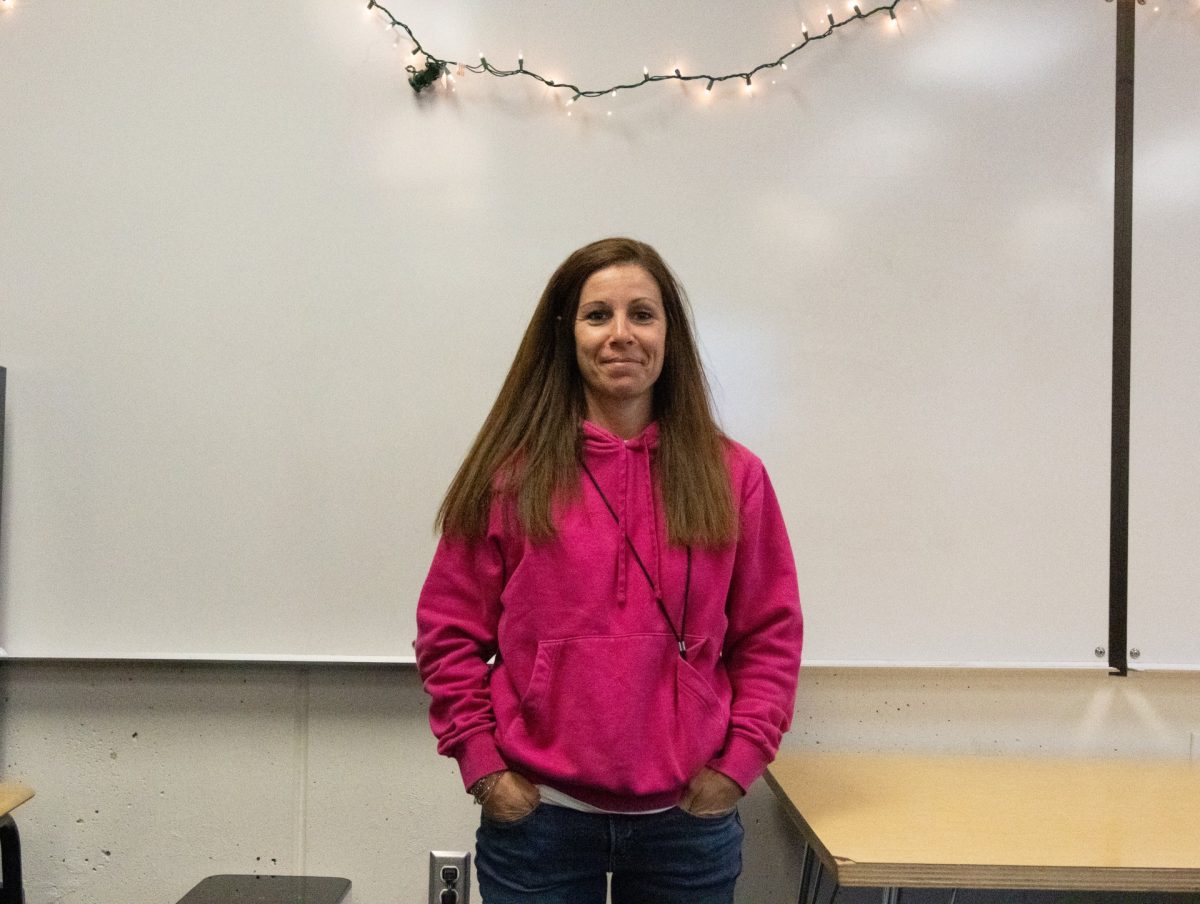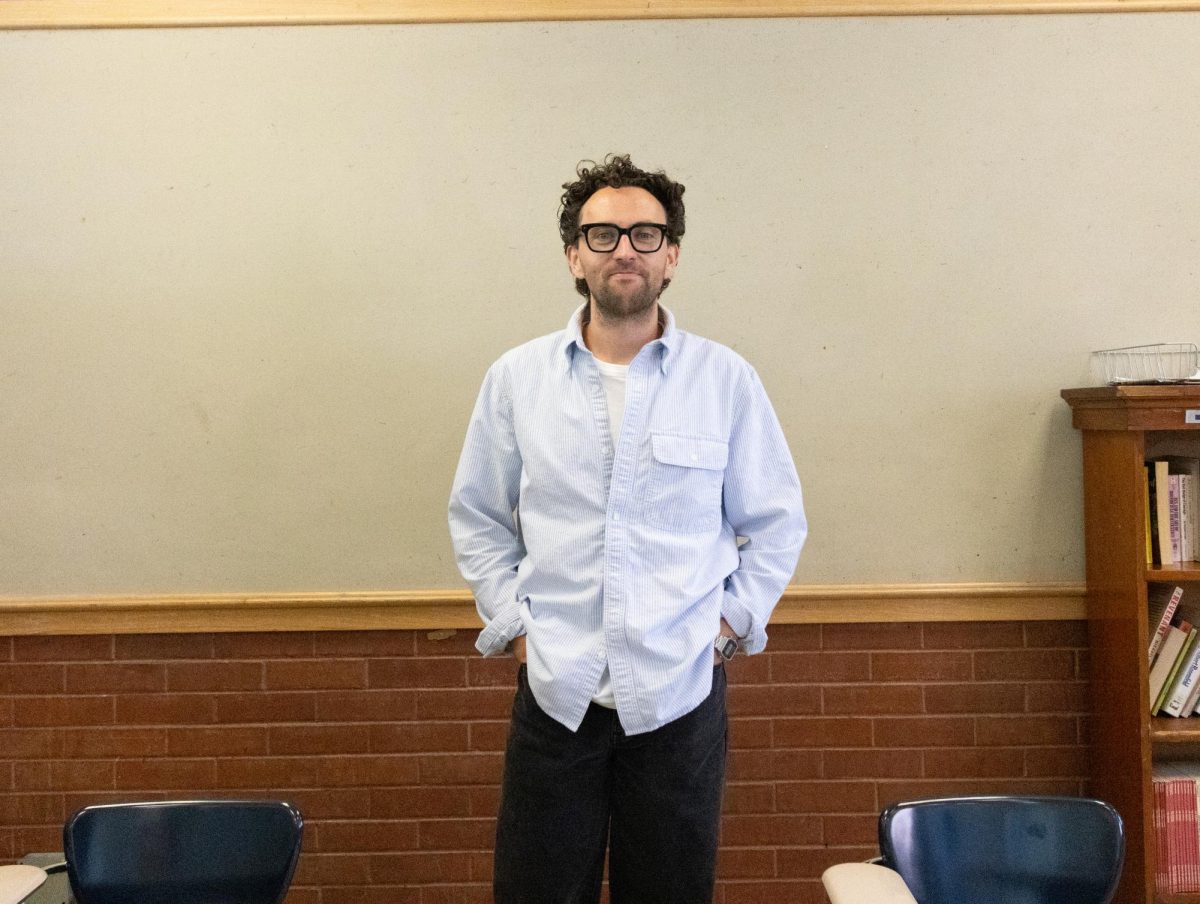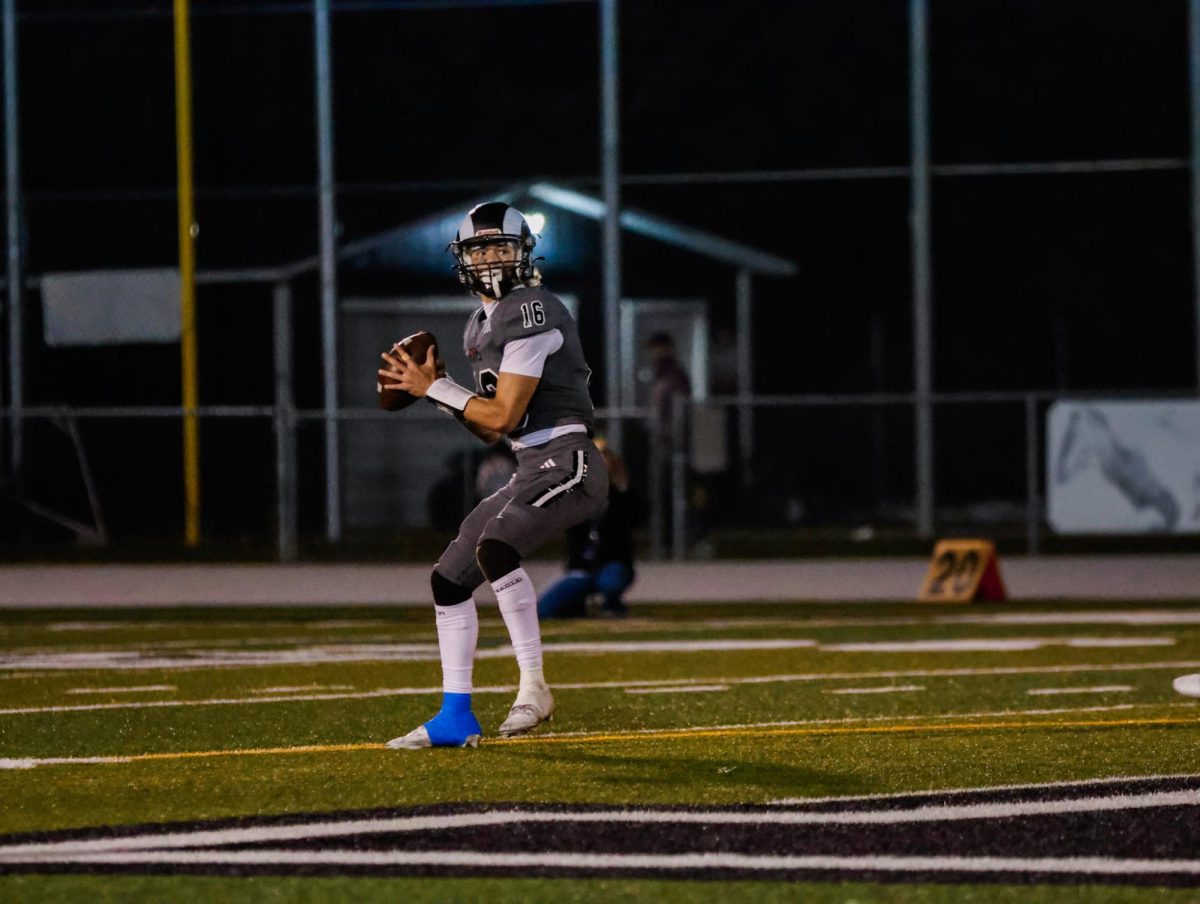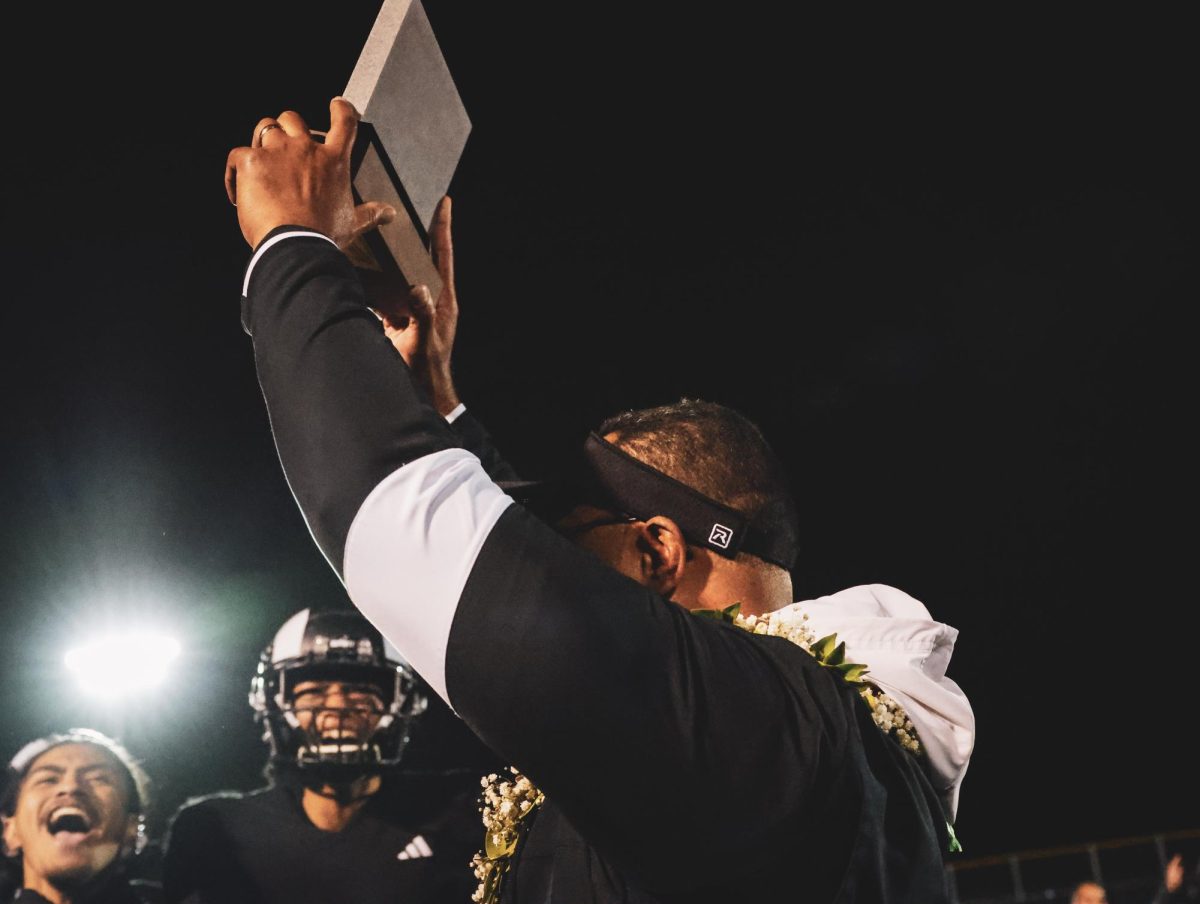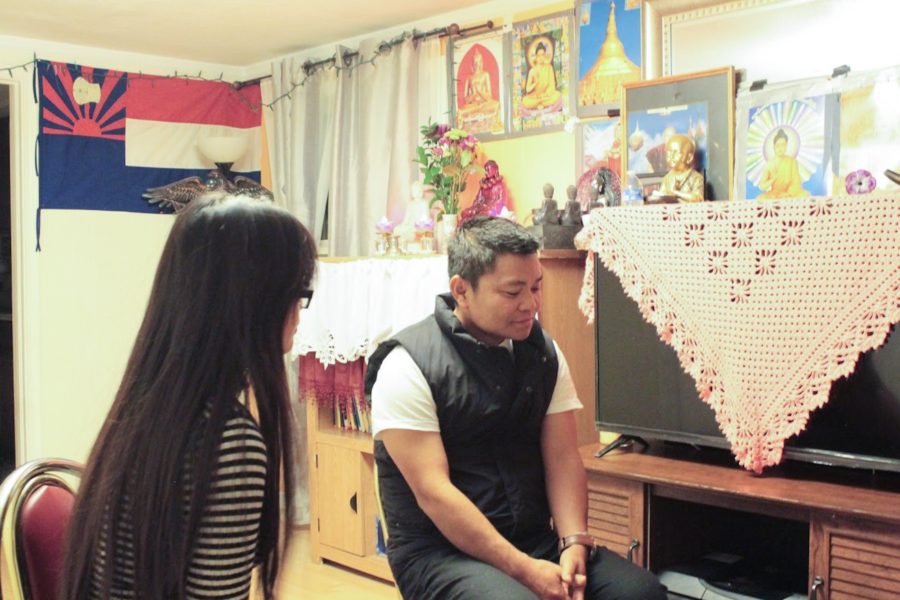Paw Si And Her Family Have Fought For The Opportunities They Have Received In The U.S.
Paw Si and her family fled from their home country, giving them opportunities they never had before.
November 2, 2018
Adrenaline kicked in as Poe Wah began to drag his body up the hill on which he was atop just moments before. Thirty people lie around him, four of whom would not survive the crash. Even after tumbling into a deep ravine in a truck and getting his back broken by a tree, Wah fought up the hill.
He fought to survive.
Wah knew he needed medical attention and would not stop inching his way up the hill until he received it. Though this was in part to save his own life, the driving force behind his actions was his unborn daughter – a daughter he has also taught to fight to survive.
Just weeks before his daughter, Paw Si, was born, Wah was rushed into a city in Thailand where his life was saved. Though his accident required many surgeries and left him unable to work, this hardship pales in comparison to what else Wah and his family have endured.
At the time of his accident, Wah and his wife Mu Thu were living in Umphiem, a refugee camp in Thailand, where they had no freedom and were forced to live off nothing but the necessities.
Paw Si, who is now a senior at Highland, was forced out of her home in Thailand as an eight-year-old. Si and her family fled from Umphiem with high hopes for their future as they made their way to America. Upon arrival in Salt Lake City, Si and her family were shocked by the entirely new life they were living. The language, lifestyle, and culture were all new to them; even their names were adjusted as their citizenship was finalized.
Despite all of the changes that had to be made to her lifestyle, Si feels as though the hardest part of the transition was leaving family behind. Although one of her dad’s siblings brought her family to the U.S. as well, the majority of her family remains back in Thailand and Burma, unable to come visit.
Si hopes to one day visit her family, but in order to get there she must focus on pursuing the life her family fought to give her.
“Coming to America was a choice my parents made to give us a better life,” Si said. “My parents told me it [learning English] is very important because we live here now and should know the culture.”
The terrible conditions Si became accustomed to opened her eyes to the importance of education, and she certainly doesn’t take it for granted.
In Thailand, Si became used to schools with strict policies and dress codes, including weekly checks for the length of finger nails. If a student misbehaved, they were hit with a ruler. As harsh as the environment was, it was all the students had, and it was viewed as better than no education at all.
Si is taking full advantage of the opportunities she has received and is on track to become a first-generation high school graduate. She doesn’t intend to do so as easily as possible, either. Si has a full plate, including a rigorous course load, extracurricular activities, and an internship that will help her achieve her goal of becoming a nurse.
Her parents are very proud of what Si has done, as they emphasize the importance of education regularly. Because they experienced life without any schooling, they know more than anyone the difficulties that come with minimal education.
“Neither of my parents went to school because when they were little they had to run away so they didn’t have time to,” Si said, describing the experience her parents had as children.
Si’s parents don’t speak English well. In spite of this, they work hard to provide Si, her brother, and her two sisters with the education they never had the opportunity to receive.
Not only does Si intend to be the first member of her family to graduate high school, but she hopes to attend the University of Utah to become a nurse. Si has prepared herself for college by taking AP classes and taking part in a nursing internship through school, and intends to take her career as a nurse back home to help those in need.
“Nursing is a great opportunity to help the people I love and my community,” Si said. “I want to set a better example for my siblings, so they will take advantage of these great opportunities since none of my parents got the chance to go to school when they were young.”
By going back to the refugee camp Si was raised in, she can provide the community with the care they need but cannot afford.
“The healthcare in the refugee camp is minimal,” Si said. “It was just enough to keep us alive.”
Si feels that her involvement at Highland will help her to reach her goal, but it has also helped with her overall transition to the United States. Si ran with the opportunities Highland gave her, and quickly became an engaged member of the community. Like her father, Si has learned to fight to survive in a new world.
Last year, Si started the International Club at Highland, allowing students from all cultures to feel like they belong and share their background, not hide it.
“I joined other clubs because I was really motivated to try new things, but in those clubs, I didn’t really see any refugee students or students who didn’t speak English well, so I was thinking about them,” Si said. “I wanted them to feel comfortable, so they could have the experience and join the clubs that they want and make friends.”
Si understands the difficulty associated with communicating with people as a refugee, because she and her family experience it every day. Wah recognizes the difficulty his daughter is facing, but feels confident that it will all be worth it.
“Everything is hard. When I came here, I couldn’t speak any English, now I only speak a little,” Wah said. “It’s hard to find a job and speak a new language, it’s all hard.”
After his accident, Wah was forced to push through difficult times, and he hasn’t stopped doing so since.
Wah is understanding about the challenges in coming to a new place, and became the Community of Utah Organization President to help those in the process of transitioning to the U.S., or anyone in need. Wah, like the rest of his family, has a passion for helping others, and aims to serve and give back to his community.
Though Si and her family have conquered a lot, the many difficulties they’ve experienced in the U.S. fail to surpass the opportunities they have received after leaving Thailand. They came from a place with no freedom. A place where they couldn’t make much money, and the money they did make couldn’t buy their way to freedom. They left family, friends, and the only life they knew behind. Yet, they haven’t regretted it since.
Inch by inch, Si is fighting her way up her own hill. At the summit is a life she never would have known back in Thailand. Now, she is almost to the top.
